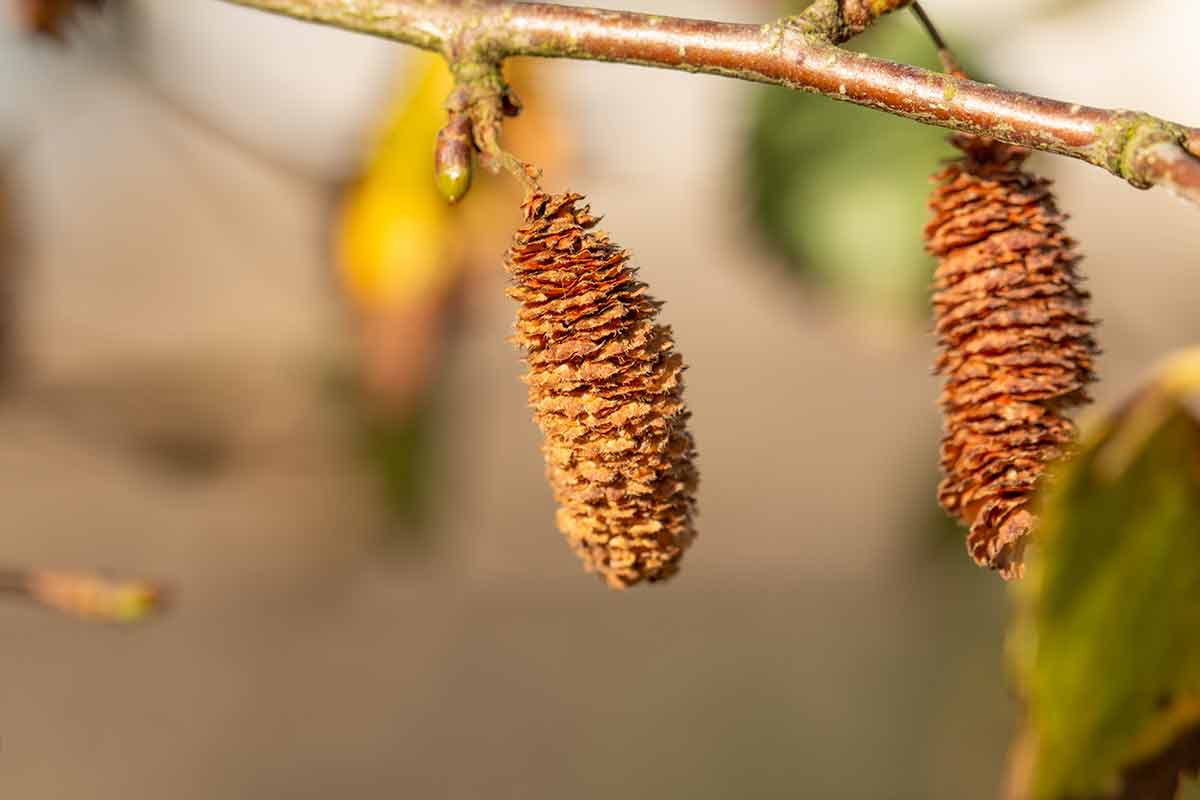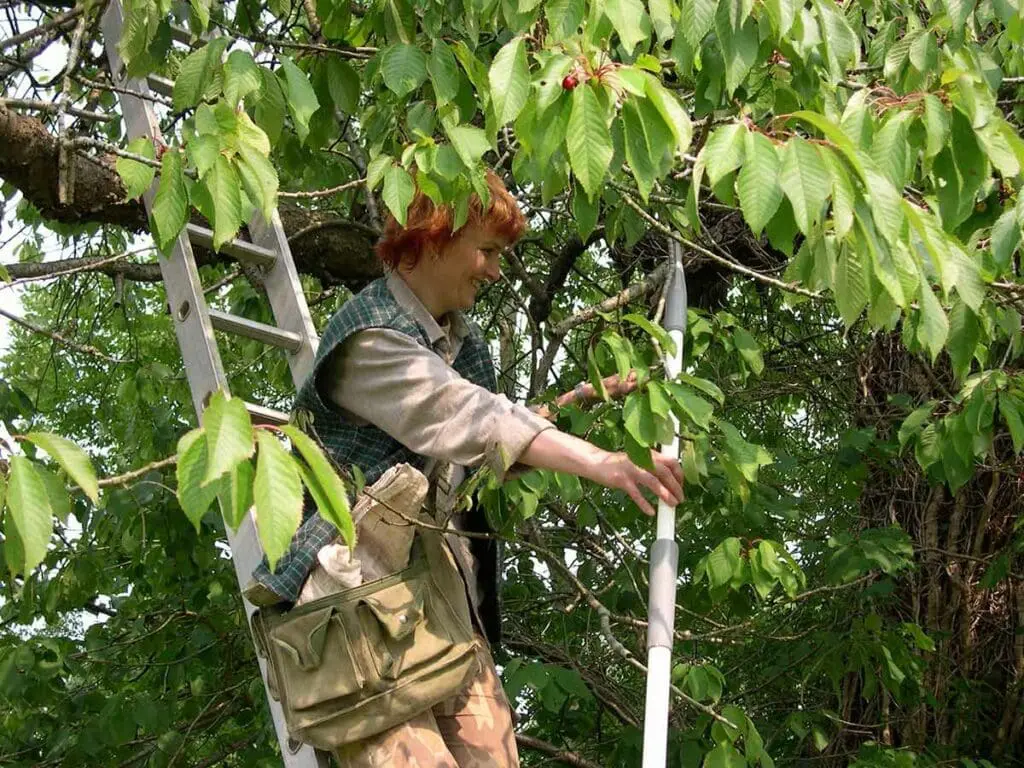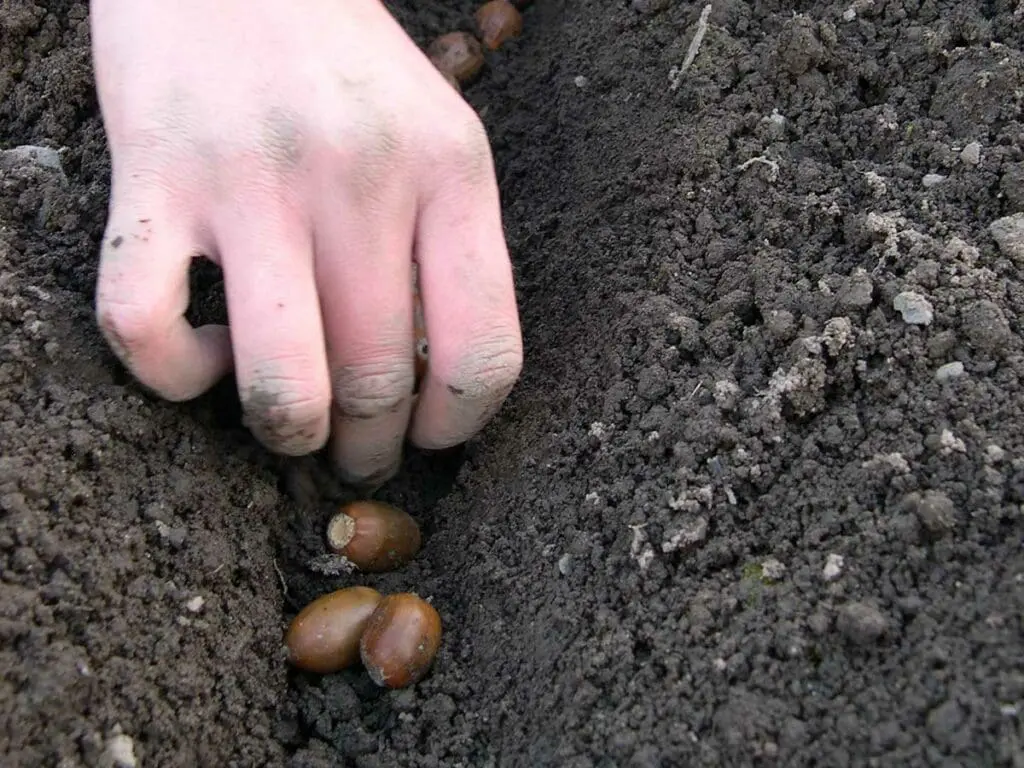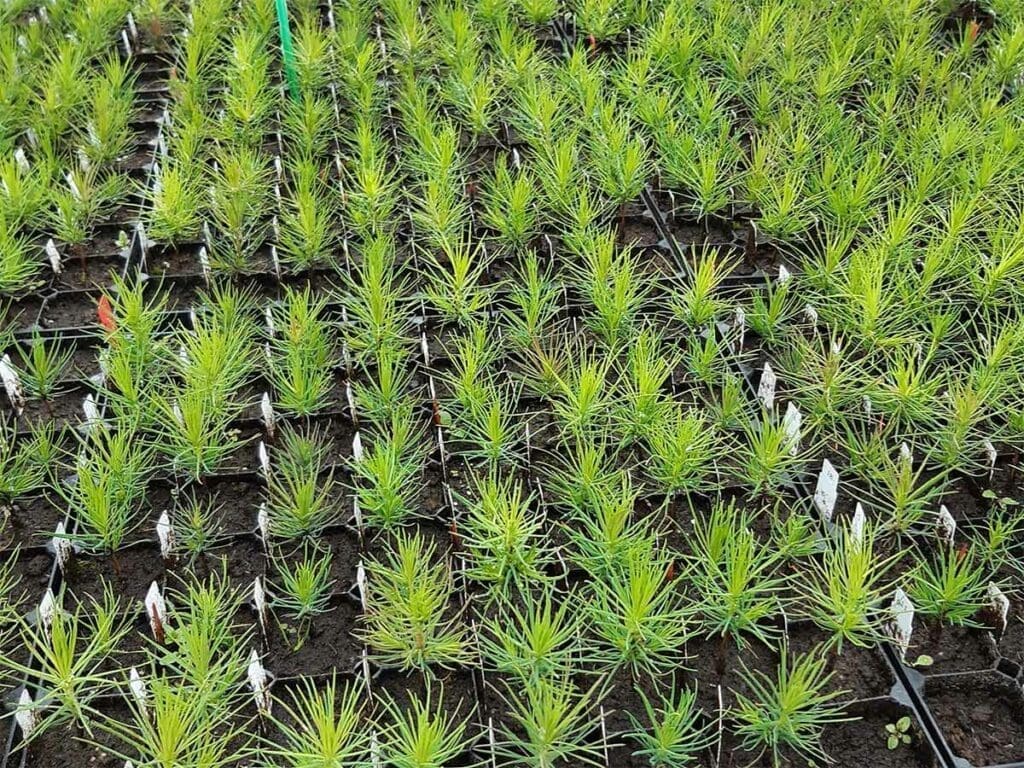- Common name: Downy Birch
- Scientific name: Betula pubescens
- Family: Birch (Betulaceae)
- How to identify Downy Birch
Picking
Collect the “strobiles” from the trees from the end of August onwards while they are still intact (a strobile is a multiple fruit containing many seeds). They can be collected just before they start to turn brown but take care to avoid heating of the seeds – they have a high moisture content.
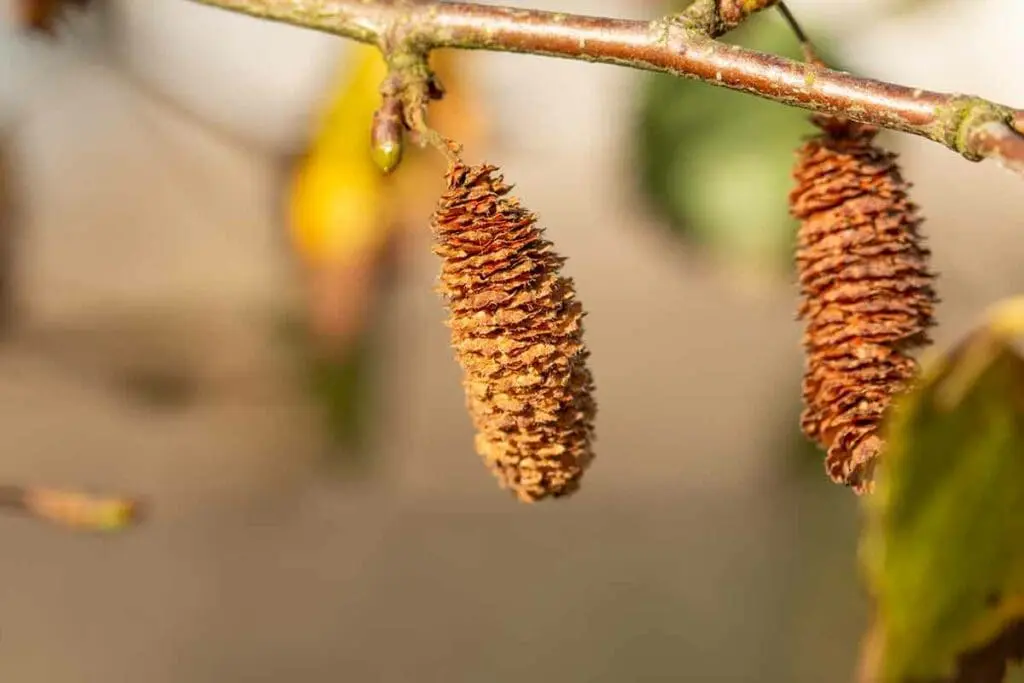
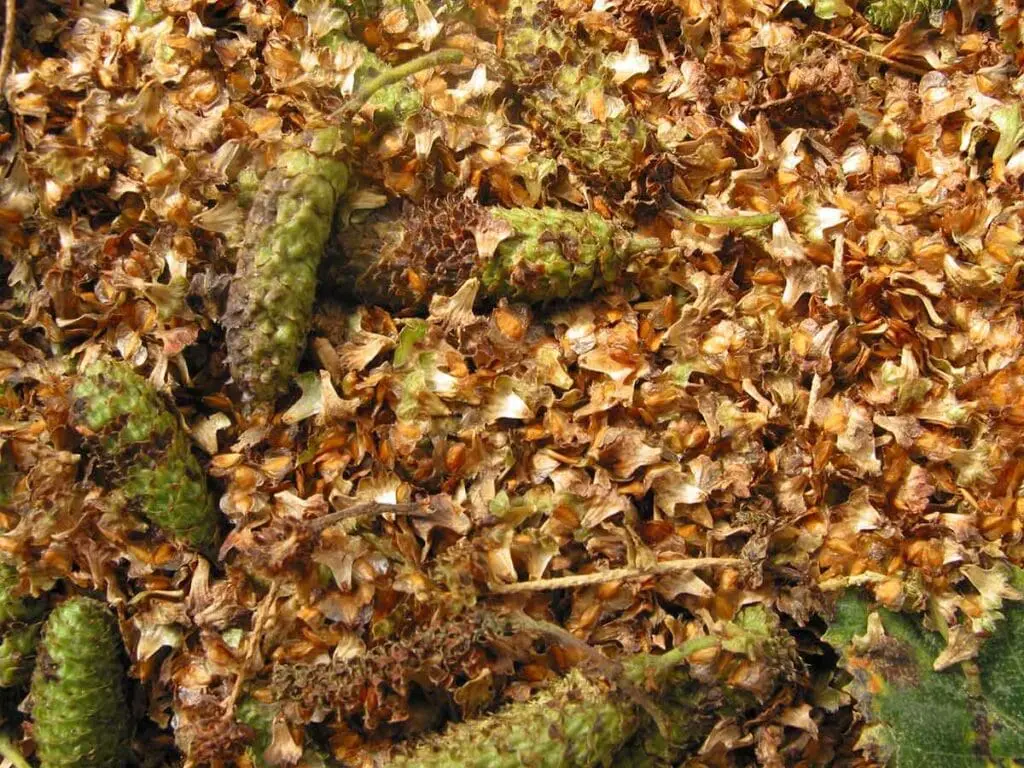
Extraction and storage
The intact strobiles should be laid out somewhere warm in thin layers (about 10cm) and allowed to dry. Once the strobiles are dry, the individual seeds can be separated and stored in a cool, dry place in plastic or hessian bags.
Pretreatment
Four weeks prior to sowing, place your seeds in a cotton bag and soak them in clean, cold water for 24-48 hours. The seeds should then be surface dried. This can be achieved by placing the full bag of seeds (tied tightly) in a spin drier and running this for a minute or so.
Alternatively, an old pair of tights can be used, the bag of seed placed in the ‘foot’ and spun carefully around the head.
Mix the seeds with a little moist horticultural sand and place in loosely-tied plastic bags in the bottom of a fridge (not the freezer!). Four weeks at low temperatures for moist birch seed improves the speed and evenness of germination.
Sowing
Downy birch is a fast-growing tree and can, therefore, be sown later in the year and still produce good growth in one season. Aim to sow during April on seedbeds or in a pot (5-10 seeds per pot and remove all but the strongest seedling).
Cover the seed with only 1-2mm coarse horticultural sand or grit. It is important that the seed is not covered too thickly as this could prevent germination. Firm the seeds gently.
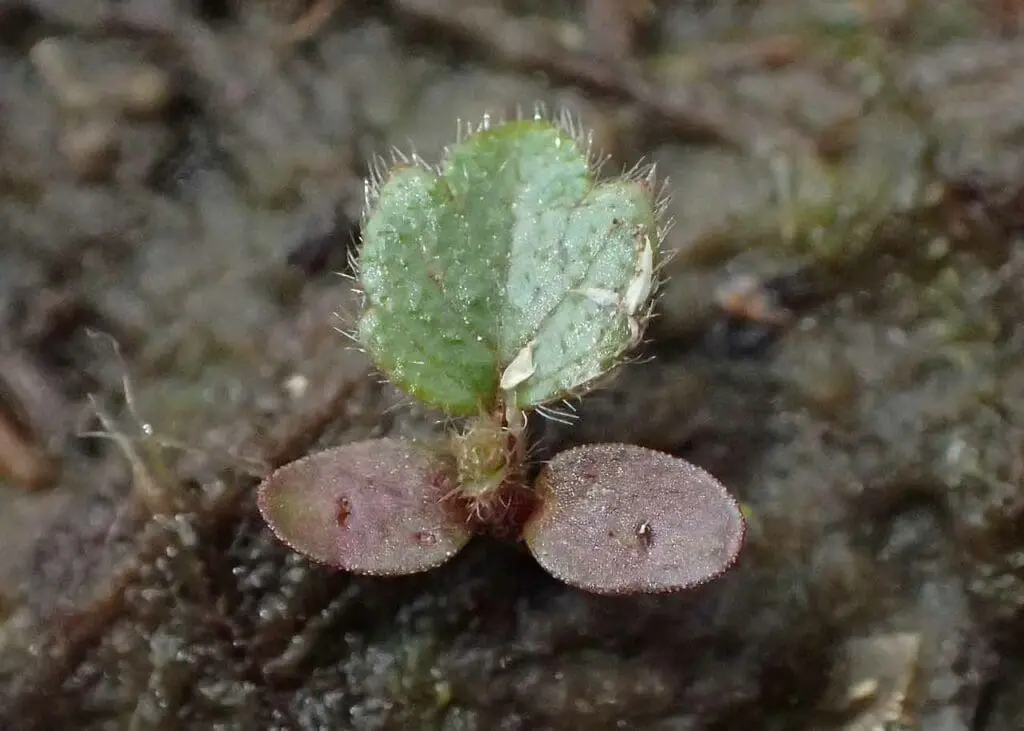
Watering
Never let your seeds or young seedlings dry out! Because these seeds are very small, they will quickly suffer without water. Stand them in a shady, sheltered spot outside and water, from the top, until the seedlings emerge. Keep moist at all times.
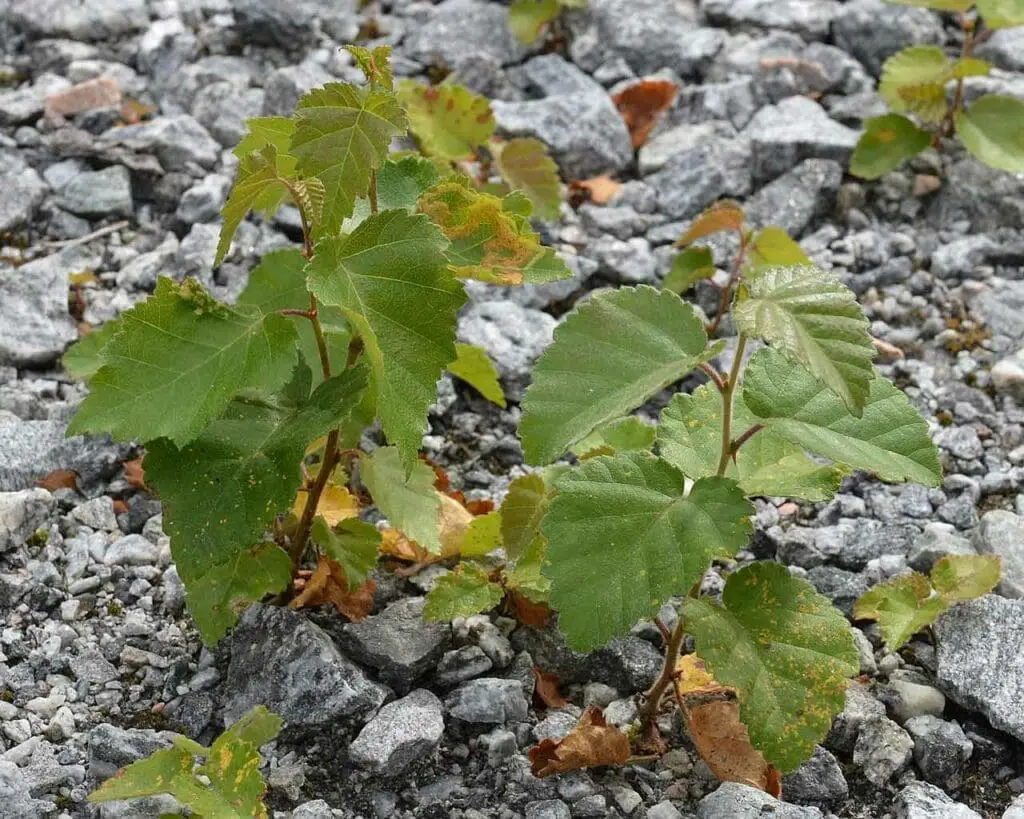
Growing
Following pretreatment in the fridge, downy birch seeds should germinate rapidly. Feed regularly with a liquid fertiliser until August to encourage growth. It would not be unreasonable to expect up to 60cm growth in the first year, but the plants can be left in the pots for another year, provided they are fed regularly whilst they are actively growing (April-September).
Planting
When your downy birch is tall enough, it can be planted into its new home. Prepare the site well by clearing away any weeds or grass and make a hole big enough to accommodate the root ball. Plant carefully in the hole, to the same depth as it was in the pot, and firm back the soil.

